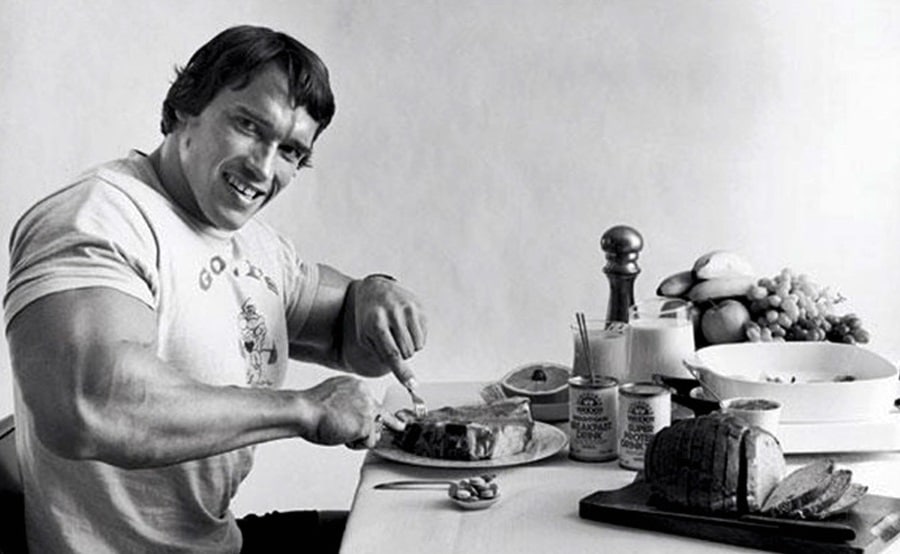

If you’re into bodybuilding and fitness you may be familiar with the word carb loading. Yet, do you know why and how athletes do it? It’s a simple concept where athletes consume more carbohydrates than usual to increase their body’s glycogen. Later, they can use the extra glycogen to perform better at a contest.
Watch What’s Trending Now!
Endurance athletes like runners, tri-athletes, and cyclists often practice loading carbohydrates before a competition. However, bodybuilding athletes utilize carb loading differently. Pro bodybuilders utilize different techniques depending on their goals and whether they’re in the off-season or preparing for a contest.
ADVERTISEMENT
Carb loading in different sports
However, before we get into the more complex form of carb loading that bodybuilders utilize, we’ll take a look at the basic principles. Carbohydrates act as fuel for our bodies, which need energy to function. This is why extremely low-carb diets may lead to a lack of energy. However, consuming excess carbs does the exact opposite.
Since our bodies store the carbs we eat, consuming more carbohydrates than required helps us store excess carbs as glycogen in our muscles and liver. Athletes use this phenomenon to store glycogen right before the event, so their bodies can provide more energy for longer. There are multiple carb-loading techniques.
Top Stories
Everything You Need to Know About Mr. Olympia’s Sole Owner Jake Wood, Who Also Brought Ms. Olympia Back

Mass Monster Who Left Everyone Stupefied With 525LBS Overhead Press Savagely Destroys Bodybuilding Coach’s Steroid Allegations

From Joesthetics to Lisa Lyon, List of Bodybuilders We Lost in 2023

46-YO Millionaire Obsessed With Staying Young Forever Selflessly Offers Money to Strangers Following This Healthy Habit

Bodybuilder Who Died a Bizarre Death in 1992, Is Recalled by Serbian Coach Present at Time of the Death: ?Could Not Even Walk to Get His Trophy?

ADVERTISEMENT

ADVERTISEMENT
The first and oldest one is the six-day carb loading. During the first three days, athletes consume low-carb diets with only 15% of their calories coming from carbs. They also train to deplete the body’s glycogen stores. In stark contrast to this, they get 70% of calories from carbs for the last three days. You may be thinking, why deplete and then load up?
Endurance cyclist and competitive bodybuilder Greg Doucette explained that depleting glycogen triggers super-compensation. So, when the athlete loads up on carbs for the next three days, the body stores even more glycogen than usual. While some studies have challenged this claim, it continues to be standard practice, especially in bodybuilding.
However, carbohydrate loading can be done in as little as a day. In the one-day variation, the athlete doesn’t train for 24 hours and eats an extremely high-carb diet. Professional bodybuilders mostly use the six-day method. Yet, they use carb loading for a completely different purpose.
ADVERTISEMENT
How bodybuilders approach carb loading
Professional bodybuilders use the term ‘peak week’ to describe the six days before a competition and the day of the contest. During this period, a pro bodybuilder goes to extreme lengths to look as muscular and shredded as possible. Carb loading is just one piece of the peak week puzzle.
ADVERTISEMENT

Bodybuilders start their carb-loading journey by increasing water intake by 50% while dropping carbohydrate consumption by the same amount. They follow it up with high-rep training with lighter weights and upping their protein intake. However, before increasing carbohydrate intake, they also drop the sodium in their diet.
ADVERTISEMENT
After four to five days of depleting carbs, they do the exact opposite, by cranking up their carbohydrate intake and reducing their water intake. The low sodium and water absorption helps them shed water weight while high carbs increase glycogen in the muscle, making them look bigger. By the time they step on stage, many, like Jay Cutler, only take a few sips of water a day. However, even pro bodybuilders can mess up peak week thanks to incorrect carb loading.
Why things may go wrong
There are improper ways to load up on carbs that can mess up a bodybuilder’s peak week, making them look unimpressive to the judges on the day of the contest. The first and the most obvious way is by consuming too much carbs. Most bodybuilders stay within the 3 to 5% per pound range when amping up carbohydrate intake.
ADVERTISEMENT
Consuming an excess of 5% per pound of body weight may make a competitor look bloated. Another mistake during carb loading is consuming too much fat. While maintaining a balanced diet is essential, choosing to eat high-carb and fat-rich food during loading could lead to weight gain.

ADVERTISEMENT
For a pro bodybuilder, going over the weight limit may result in penalties or disqualification. Consuming excess fiber may also lead to bloating. So, carb loading for a bodybuilder is about maintaining a fine balance. While it’s grueling, one mistake could cost them dearly.
However, things are more difficult during competitions like the Mr. Olympia. During these two-day contests, bodybuilders have to be at their best for two nights in a row, making it easy to miss the peak of ‘peak week.’ So, it’s safe to say that carb-loading is an essential part of professional bodybuilding, but not everyone gets it right.
ADVERTISEMENT
ADVERTISEMENT
ADVERTISEMENT

